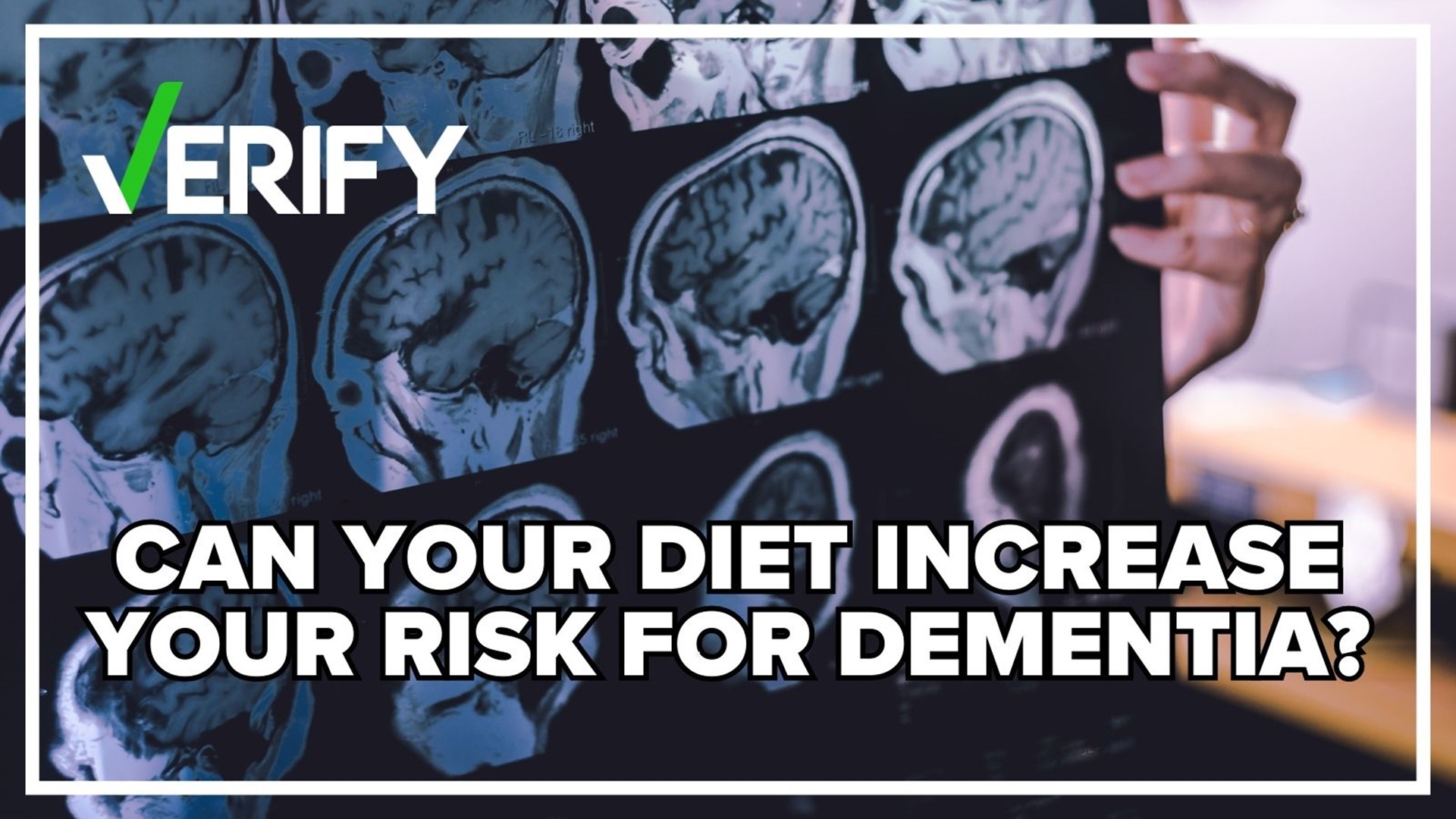CHARLOTTE, N.C. — June is Alzheimer's and Brain Awareness Month and more than 6 million Americans age 65 and older are living with Alzheimer's, according to the Alzheimer's Foundation of America.
According to the World Health Organization, Alzheimer's disease is the most common form of dementia and may contribute to up to 70% of cases. Some people have suggested that certain foods can increase or decrease your chances of developing Alzheimer's, but is it true?
SOURCES
- Dr. Charles Bernick, A neurologist at the Cleveland Clinic Lou Ruvo Center of Brain Health
- Dr. Robert Wiggins, neurology specialist at Novant Health
- A study published in Jama Neurology
WHAT WE FOUND
A study published in Jama Neurology shows men and women who ate the most ultra-processed foods had a 28% faster rate of global cognitive decline and a 25% more rapid rate of executive function decline than those who ate the least amount of processed foods.
"You can think of things like beverages, chips, fast food, even frozen foods, and it seems that people with a diet that is very heavily weighted to these types of foods seem to have a higher risk of dementia," Berinick said.
Many doctors, including Bernick and Wiggins, suggest diets like the Mediterranean diet can lower your risk of developing dementia.
"Increasing the things that you are eating coming from a plant source and trying to decrease the things that are coming from animal sources and decreasing things coming from processed foods," Wiggins said.
Both doctors said your diet is not the definitive factor in increasing or decreasing your risk. That's because Alzheimer's disease is the most common form of dementia. It has a lot to do with your age and genetics.
Regardless of that fact, Wiggins suggests staying active mentally and physically.
"Trying to do mentally challenging things, not just watching TV but pulling out a book to read or talking to a friend about an interesting thing you have learned," Wiggins said.
Contact Meghan Bragg at mbragg@wcnc.com and follow her on Facebook, Twitter and Instagram.
VERIFY is dedicated to helping the public distinguish between true and false information. The VERIFY team, with help from questions submitted by the audience, tracks the spread of stories or claims that need clarification or correction. Have something you want to VERIFIED? Text us at 704-329-3600 or visit VERIFY.

